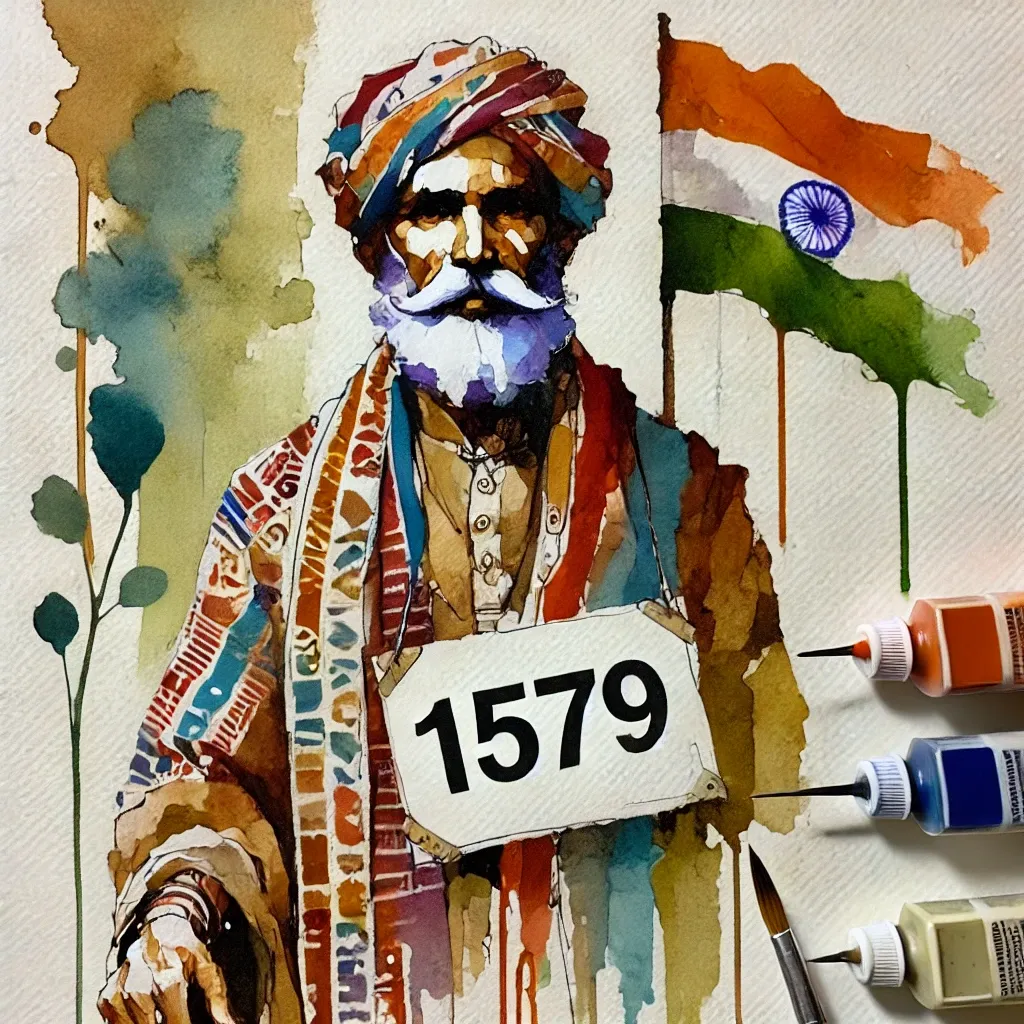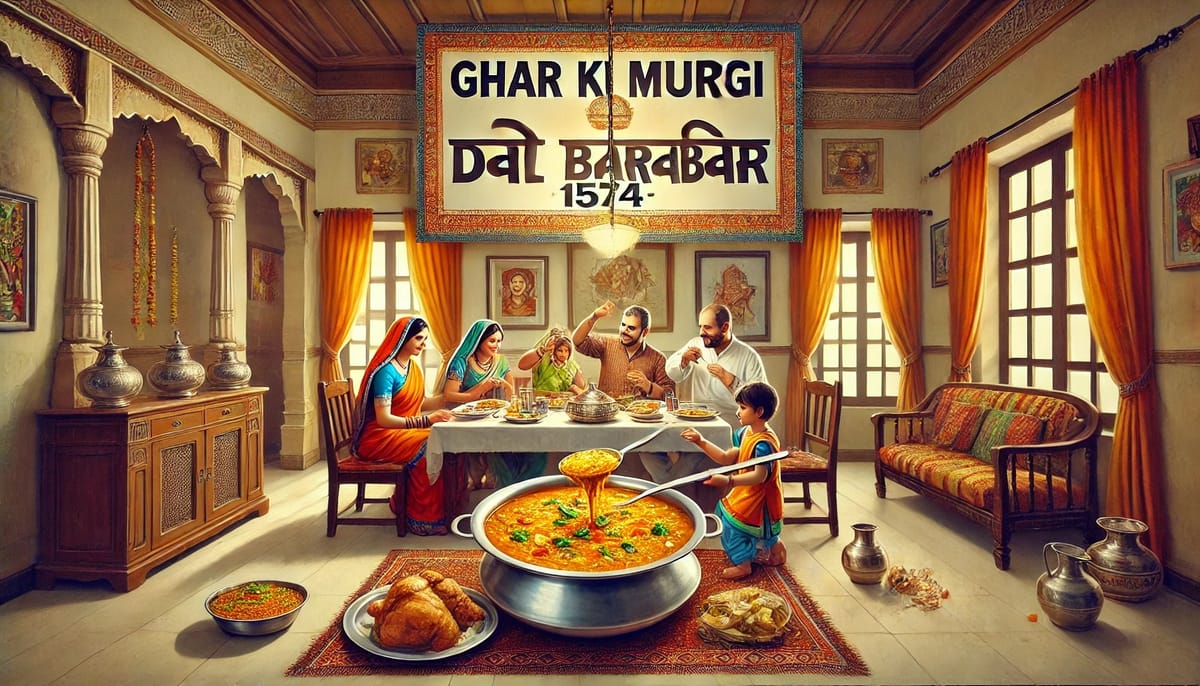
Counting Down to 90 - Week 1562 - Hard/Material Progress vs Soft/Non-Material Progress
My perspective bias - too locally embedded to appreciate the "amazing" progress Indian origin visitors see. Their perspective bias, a highlight reel effect of new infrastructure and other shiny changes but insulated from social and daily living issues.
The Concept Explained

Audio
Link to click if you don't see the audio below.
Text
Last week, I had dinner with a radiology colleague (S) of Indian origin from the US. S has never lived in India, but has spent the last 3 months on sabbatical in a University in Northern India and used the opportunity to travel through many parts of Northern India. Also present was a local 50-year old PE player (M) and two other radiologists, one local (A), one visiting from the US (J).
S insisted that India was resurgent and progressing rapidly. He cited the examples of the many good roads in Northern India and specifically the ability of an Uber driver to earn Rs. 40,000 per month and to afford a rental apartment in Noida and send his children to good schools. M agreed with S, citing examples like the Coastal road and the improving infrastructure in and around Mumbai.
Three days ago, I was at dinner with two medical college friends (H and D) who now live in the UK, but visit India at least twice a year and still have close family in Mumbai and around. I mentioned this conversation to them and asked them their views. They too were of the opinion that there were clear signs of progress, again citing the Atal Setu and the Coastal road, which had made their travel so much easier, when coming back from Pune and going from Prabhadevi to Marine Lines, respectively and the fact that so many of their friends and family members had become materially very successful over the last 20-30 years.
Maybe it’s because I have already spent 2/3rds of my life living in the same building, in the same neighborhood, in the same city, except for one sabbatical for one year in 1994 in the US and another for 3 months in the UK in 2003 that I just couldn’t find myself buying their arguments, given that people still spit and throw garbage on the road, drive on the wrong side, break every traffic rule, honk and are generally racist, the darker you are.
S and his other friend J, also from the US but with strong family roots in India, told me that I perhaps needed to leave the country for some time and then come back to appreciate the many great changes that they can obviously see. Maybe they are correct and maybe I have perspective bias, since I am too locally embedded to appreciate the amazing progress that they visualize.
I checked ChatGPT, DeepSeek and other resources to understand better what progress means. That’s when I realized that we were just looking at different definitions from different perspectives. What S and J and H and D and others of Indian origin who visit India for short periods see is the so-called Material or Hard Progress, which includes economic growth, infrastructure growth, etc. Their focus is on the Coastal road or the Atal Setu or the new shiny airports or the NOIDA cab driver moving up one or two economic classes or their friends and family, who are now part of the 1 or 10 percenters and in the same socio-economic circles…material, tangible, structural, hard growth.
I see them as a given. I expect them to happen if India is to be part of a progressive world. Every year, there is some new shiny building or road or mall or airport…after the pre-1991 scarcity era, the first time these happened (Crossword mall, the modernized Santacruz airport, the Expressway to Pune), they felt amazing…but now, most of these no longer even register.
Where I don’t see progress is with people and their behavior, the so-called Soft Progress or the Social/Behavioral Progress or the Non-Material Progress. Most people from abroad are able to gloss over this, because they are here for a short period of time, and their interactions are mainly with the 1 or 10 percenters. They rarely have to bother about garbage on the roads or the lack of pavements or green spaces or inflation or the 50% of India’s population that earns less than Rs. 10,000 per month. This is their perspective bias, a highlight reel effect, where they see the new infrastructure and other shiny changes but remain insulated from the social and daily living issues of the residents.
Are we really progressing if we don’t have pavements to walk on, if there is still garbage on every corner of every road, if people still honk incessantly, drive recklessly and refuse to obey rules and drive on the wrong side or on the pavements? And the 1 and 10 percenters barricading themselves in gated complexes believing that these are no longer their problems, is also not progress. If the majority of the poor are not able to lift themselves up, if access to healthcare is still a challenge, if the rich are just getting richer and there is increasing polarization…are these signs of progress?
This is the problem being Jain and believing in anekantvada or balancing viewpoints. Each one is, I guess, correct from their perspective. They see India progressing, while I see that material progress as something that is par for the course. I see India not progressing behaviorally and socially and that is not even on their radar.
With the assumption that soft progress can lag behind hard progress by 2 generations or so, we can only hope that 20-30 years down the line, people born now, who will then be in their 30s, will be far more socially conscious than their parents or grandparents.
I hope I can write positively about both hard and soft progress, 20 or 30 years from now, when I will be 90 years old.
PS: It is just so frustrating. Some things just don’t change. I wrote about medical meetings and conferences not running on time, on 24 Nov 2024 and earlier.

Yesterday and last week Saturday, the sessions where I was supposed to speak were running a straight one hour late. Last week, I gave my talk and left, not willing to wait one hour more for the panel discussion and yesterday, I bumped myself up to being first instead of last and left, so that I could reach Lonavala in time before traffic built up.
Why can’t the organizers take the trouble to ensure that meetings run on time? When they are delayed, they mess up everyone’s schedules. The speakers, the audience…all suffer…
More and more now I am refusing speaking invitations, because it is just painful to reach on time, be on time and then have everything go for a toss because previous speakers did not stick to time and the moderators couldn’t stop them and the organizers couldn’t empower the moderators, etc.
30 years now…no progress.
Bhavin's Writings Newsletter
Join the newsletter to receive the latest updates in your inbox.






